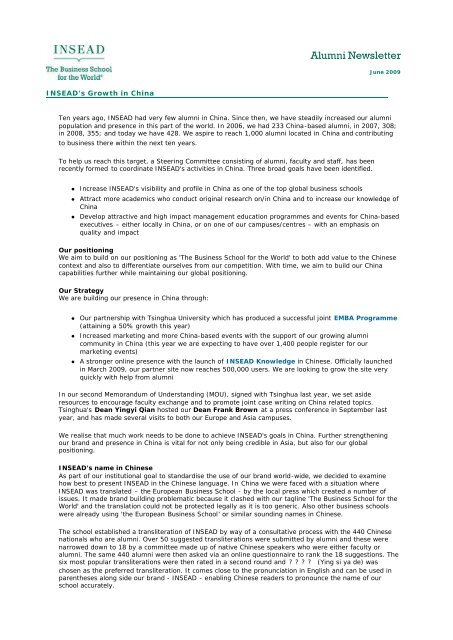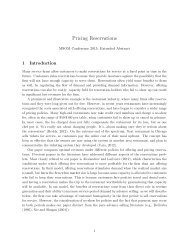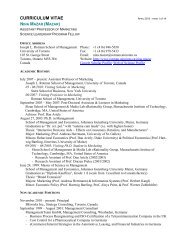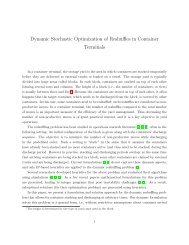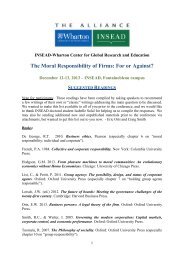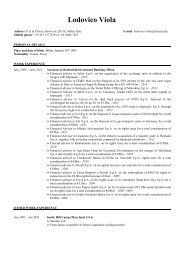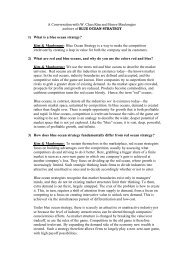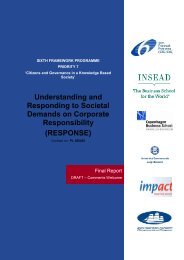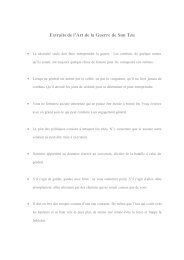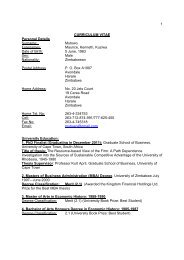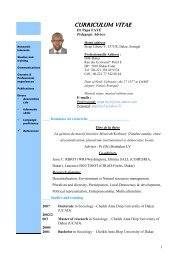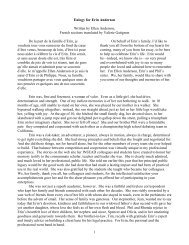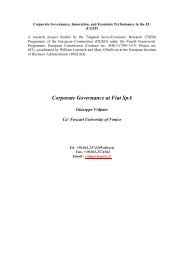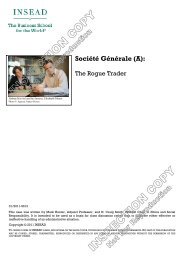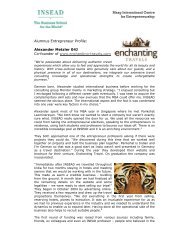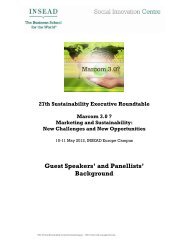Print this newsletter (pdf) - Insead
Print this newsletter (pdf) - Insead
Print this newsletter (pdf) - Insead
You also want an ePaper? Increase the reach of your titles
YUMPU automatically turns print PDFs into web optimized ePapers that Google loves.
INSEAD's Growth in China<br />
June 2009<br />
Ten years ago, INSEAD had very few alumni in China. Since then, we have steadily increased our alumni<br />
population and presence in <strong>this</strong> part of the world. In 2006, we had 233 China-based alumni, in 2007, 308;<br />
in 2008, 355; and today we have 428. We aspire to reach 1,000 alumni located in China and contributing<br />
to business there within the next ten years.<br />
To help us reach <strong>this</strong> target, a Steering Committee consisting of alumni, faculty and staff, has been<br />
recently formed to coordinate INSEAD's activities in China. Three broad goals have been identified.<br />
� Increase INSEAD's visibility and profile in China as one of the top global business schools<br />
� Attract more academics who conduct original research on/in China and to increase our knowledge of<br />
China<br />
� Develop attractive and high impact management education programmes and events for China-based<br />
executives – either locally in China, or on one of our campuses/centres – with an emphasis on<br />
quality and impact<br />
Our positioning<br />
We aim to build on our positioning as 'The Business School for the World' to both add value to the Chinese<br />
context and also to differentiate ourselves from our competition. With time, we aim to build our China<br />
capabilities further while maintaining our global positioning.<br />
Our Strategy<br />
We are building our presence in China through:<br />
� Our partnership with Tsinghua University which has produced a successful joint EMBA Programme<br />
(attaining a 50% growth <strong>this</strong> year)<br />
� Increased marketing and more China-based events with the support of our growing alumni<br />
community in China (<strong>this</strong> year we are expecting to have over 1,400 people register for our<br />
marketing events)<br />
� A stronger online presence with the launch of INSEAD Knowledge in Chinese. Officially launched<br />
in March 2009, our partner site now reaches 500,000 users. We are looking to grow the site very<br />
quickly with help from alumni<br />
In our second Memorandum of Understanding (MOU), signed with Tsinghua last year, we set aside<br />
resources to encourage faculty exchange and to promote joint case writing on China related topics.<br />
Tsinghua's Dean Yingyi Qian hosted our Dean Frank Brown at a press conference in September last<br />
year, and has made several visits to both our Europe and Asia campuses.<br />
We realise that much work needs to be done to achieve INSEAD's goals in China. Further strengthening<br />
our brand and presence in China is vital for not only being credible in Asia, but also for our global<br />
positioning.<br />
INSEAD's name in Chinese<br />
As part of our institutional goal to standardise the use of our brand world-wide, we decided to examine<br />
how best to present INSEAD in the Chinese language. In China we were faced with a situation where<br />
INSEAD was translated – the European Business School - by the local press which created a number of<br />
issues. It made brand building problematic because it clashed with our tagline 'The Business School for the<br />
World' and the translation could not be protected legally as it is too generic. Also other business schools<br />
were already using 'the European Business School' or similar sounding names in Chinese.<br />
The school established a transliteration of INSEAD by way of a consultative process with the 440 Chinese<br />
nationals who are alumni. Over 50 suggested transliterations were submitted by alumni and these were<br />
narrowed down to 18 by a committee made up of native Chinese speakers who were either faculty or<br />
alumni. The same 440 alumni were then asked via an online questionnaire to rank the 18 suggestions. The<br />
six most popular transliterations were then rated in a second round and ???? (Ying si ya de) was<br />
chosen as the preferred transliteration. It comes close to the pronunciation in English and can be used in<br />
parentheses along side our brand - INSEAD - enabling Chinese readers to pronounce the name of our<br />
school accurately.


